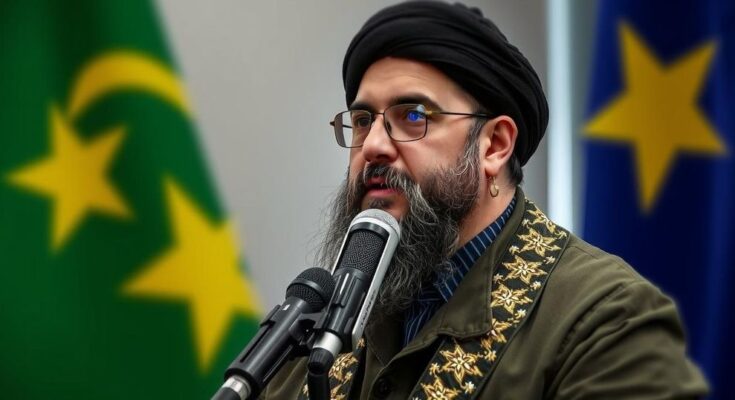The killing of Hezbollah media chief Mohammed Afif by Israeli airstrikes has exacerbated tensions in the Israel-Gaza-Lebanon region. Concurrently, Pope Francis has called for a genocide investigation into Israel’s military actions in Gaza, widely viewed as exacerbating a humanitarian crisis. The IDF’s intensified operations align with ongoing diplomatic efforts from the White House as President-elect Donald Trump prepares to assume office in January.
The recent escalation of conflict in the Israel-Gaza-Lebanon region has garnered significant attention following the confirmed death of Mohammed Afif, Hezbollah’s media relations chief, due to an Israeli airstrike on November 17, 2024. This strike not only caused the partial collapse of a building in Beirut but also resulted in injuries to three individuals. The Israel Defense Forces (IDF) acknowledged Afif’s integral role within Hezbollah, particularly highlighting his involvement in past military activities against Israel, including a notable drone attack on Prime Minister Benjamin Netanyahu’s residence in Caesarea. Simultaneously, Israeli military operations have intensified across Gaza and Lebanon, with notable airstrikes targeting various locations, including the capital of Lebanon. This surge in military actions occurs amidst heightened diplomatic efforts spearheaded by the White House, which seeks to mitigate tensions before the inauguration of President-elect Donald Trump. In a broader context, Pope Francis has called for an investigation into Israel’s military actions in Gaza, suggesting that they may meet the criteria of genocide as articulated by various legal experts. His comments, part of an upcoming publication, profoundly reflect the humanitarian crisis unfolding in the region, especially concerning Palestinians in dire conditions due to the ongoing conflict and blockade.
The ongoing conflict between Israel and Hezbollah, as well as Israel and Hamas in Gaza, has historically involved periods of violence and military operations. The recent airstrikes come as a response to perceived threats and acts of aggression, including attacks from these groups. Notably, the killing of Hezbollah’s media relations chief marks a significant blow to the organization’s communications framework and military strategy. The involvement of international entities, such as the Vatican, indicates a global concern regarding the humanitarian implications of the conflict, particularly in relation to the plight of civilians caught in crossfire. The rising tensions have pushed diplomatic efforts into the spotlight as the international community seeks to navigate this volatile situation, aiming for peace and stability in a deeply fractured region.
In summary, the conflict in the Israel-Gaza-Lebanon region continues to escalate, exemplified by the killing of Hezbollah’s Mohammed Afif. This event underscores the ongoing military confrontations between Israel and Hezbollah and the humanitarian crises emerging from these conflicts. The calls for investigations into potential war crimes highlight the international concern over the situation, suggesting that resolution efforts will require significant diplomatic engagements as the region remains fraught with tensions.
Original Source: abcnews.go.com




